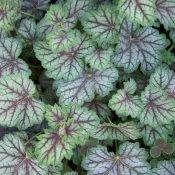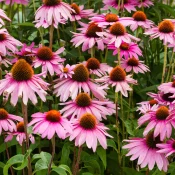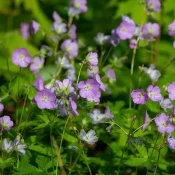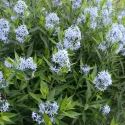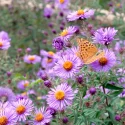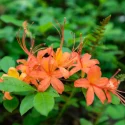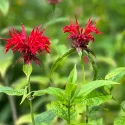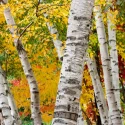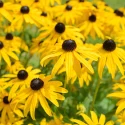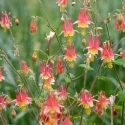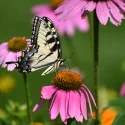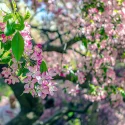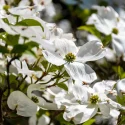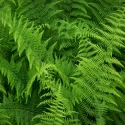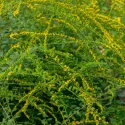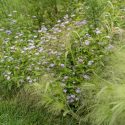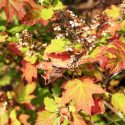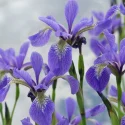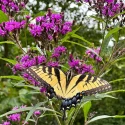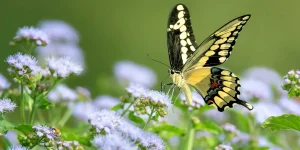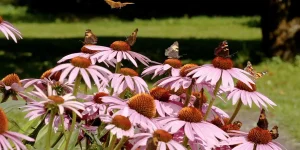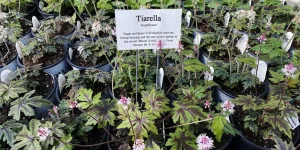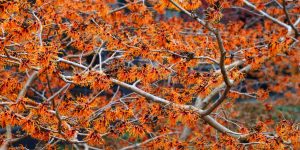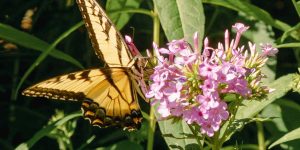Interview with Liz Harden, Nursery Manager at ARRC Native Nursery
Liz Harden’s experience with native plants goes back to childhood walks with her father, identifying trees. In her role as Nursery Manager at ARRC Native Nursery in Pennsylvania, she helps both beginner gardeners and large-scale landscapers find the plants they need for the Mid-Atlantic area. We were excited to hear about what she’s learned, and where she sees native plant trends going.
Thank you so much for the time, Liz! Can you tell us a bit about yourself and your gardening background?
My career with Aquatic Resource Restoration Company (ARRC) is still young as I settle into my third year with ARRC’s Native Plant Nursery.
Prior to this, I spent five years with an environmental restoration company, learning how stream reconstruction and plant restoration installation go hand-in-hand. For the seven years before that I worked at a gardening center/wholesale plant supplier and learned the ropes of ornamental plants and propagation.
Growing up, my mother was an avid gardener who had a passion for attracting butterflies and hummingbirds. Her garden was a colorful oasis nestled in the center of the farm where I was raised.
What region are you in?
Mid-Atlantic Piedmont.
You are the Nursery Manager at ARRC Native Nursery. Tell us a little about your role and what a typical day looks like.
As the manager of ARRC’s native nursery, my primary responsibility is to help guide my team through horticultural challenges in order to produce the best native plants for our projects and our clients.
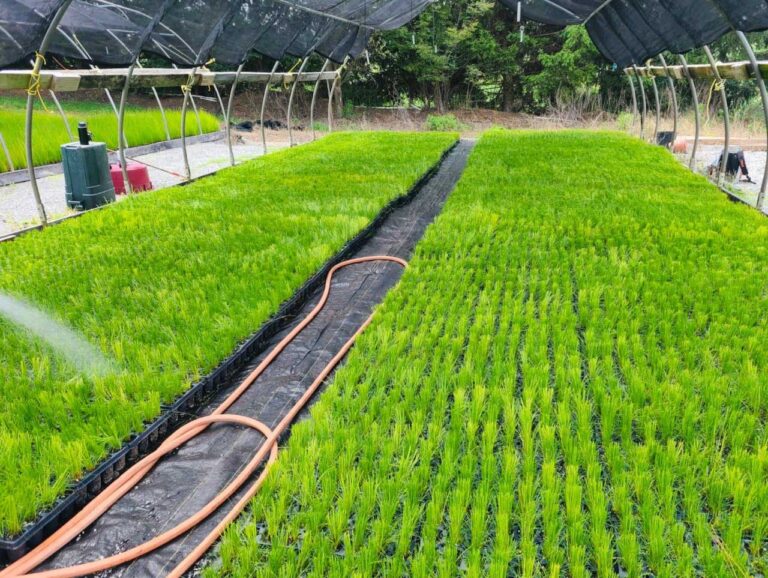
A normal day starts with our IPM scout making the early rounds of the nursery and reporting to the team with anything urgent at our morning kick-off meeting. Once everyone has started their tasks for the day, I circulate throughout the nursery to answer questions.
On a typical day, I would oversee pest identification and treatment, pruning techniques, production orders, sales, onboarding, purchasing, and, most importantly, crop monitoring. Our team is constantly on the lookout for pests, disease, and other plant afflictions. When we find a new one, it’s a fun day because we get to look it up, and we all learn!
Now that we know a little about you, let’s talk about how you got started.
How did you first get interested in native plants?
Venturing beyond the farm to explore the woods was a right of passage when you were old enough to find your way home. Lost in the woods, you find yourself using plants and rocks as landmarks, even when you don’t know their names yet. My interest in native plants comes from a place of familiarity, of seeing these species change throughout the seasons and recognizing them from my childhood.
The same woods, many of the same trees, five generations of protecting and learning.
Was there a particular moment or experience that sparked your passion for native plants?
Walking the woods with my father, he would point to the different trees and ask me what they are. When I didn’t know, he would teach me and give me ways to remember them, tips passed down from when his pappy taught him. The same woods, many of the same trees, five generations of protecting and learning.
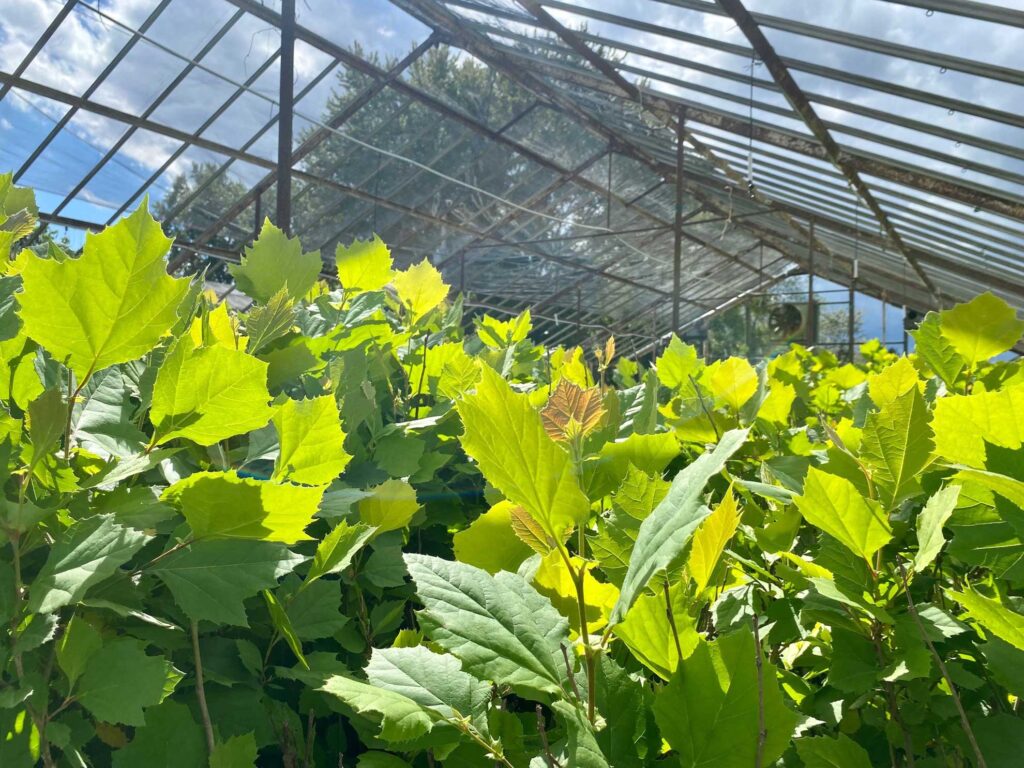
It’s amazing that your passion for native plants is rooted in your family history. We’d love to hear how you’ve used your experience to guide beginner gardeners in starting their own native plant journey.
For someone new to gardening, can you explain what makes native plants different from non-native plants?
Native plants correspond to a geological region of a natural origin. It means they’ve survived and adapted for centuries prior to humanity moving them across regions or breeding for enhanced characteristics.
Taking small steps to restore areas of the yard with native plants helps bring balance to the local ecosystem.
Why do you believe native plants are important for suburban homeowners and new gardeners?
Native plants existed in many areas prior to the development of suburban communities. Taking small steps to restore areas of the yard with native plants helps bring balance to the local ecosystem.
What are some common misconceptions about native plants that you often encounter?
“They’re not colorful enough” “They get too big” “It’s just a fad” “They all look the same” “It hurts the resale value of my house” “Their bloom time is too short”
Many new gardeners feel overwhelmed with the choices available. What advice would you give to someone just starting out?
- Plant your trees first, with thorough planning and research.
- Prioritize shrubs after that for filling spaces and give them a few years to fill in.
- Play with your perennials once you know they won’t be crowded out!
Native plants for beginners
Liz Harden’s Picks
Unsure where to begin? Liz recommends starting here:
What do you find most rewarding about helping new gardeners succeed with native plants?
Knowing that when gardeners succeed, the ecosystem succeeds too.
Gardening can be a workout, meditation, grounding, artful expression, alone-time, together-time, anything you want to make it into.
How can gardening with native plants become a fun and fulfilling experience for someone who might see it as a chore?
Gardening can be a workout, meditation, grounding, artful expression, alone-time, together-time, anything you want to make it into. When you neglect your garden the maintenance seems overwhelming to catch up. Make time to work on it consistently so it doesn’t feel like a burden.
Liz Harden’s 5-Gallon Bucket Rule
Fill a bucket with weeds every time you enter the garden.
Not enough to feel like a chore, but enough to see a visual difference.
What resources (books, websites, local groups) would you recommend for someone wanting to learn more about native plants and gardening?
- Pinelands Podcast!
- Native Plants Healthy Planet
- Visit your local garden center
- Become a member of a native plant society and offer your time; plant people are awesome and love to share their knowledge
- Read Doug Tallamy’s books
What a great list of resources and tips! Before we finish up, we’d love to hear your thoughts on the future of native gardening.
Where do you see the future of native plant gardening going? Are there any trends or changes you’re excited about?
The future of native plants looks promising! As more people start to understand what was taken away from the ecosystem when old-growth forests were destroyed, policies are being put in place to restore natives in conjunction with building and ever-expanding roadways. Demand for native plants seems to keep going up to match the rate of new construction.
Ask your garden center to stock more natives, stop buying the invasives, and leave the ornamental plants behind.
How can new gardeners contribute to the broader movement of supporting native plant habitats?
Gardeners dictate what the local nurseries sell based on simple consumerism. Ask your garden center to stock more natives, stop buying the invasives, and leave the ornamental plants behind. Get involved in HOA’s and bring awareness to your community. Become a watershed steward where you have a voice to represent your neighborhood. Visit your local parks! Use your plant knowledge to inspire children.
Any final thoughts or encouragement for those considering starting their own native plant garden?
How about my favorite quote?
“My goal in life is to be planting when I fall over. Have one hand on a plant, and one hand on a shovel and looking for a spot to put that plant in the garden. I’m going to keep at it until my last day on planet Earth. It’s been a journey. So far the journey’s not over.” —Michael Dirr
Wow. That’s our new favorite quote, too.
Thank you so much, Liz! It’s been a pleasure learning about your background and hearing your helpful tips. We can’t wait to visit ARRC’s Native Nursery. Until then, happy planting!
Further information
ARRC Native Nursery
15073 Bonnair Road, Glen Rock, PA 17327
Please call to schedule a visit: (717) 227-5437
ARRC Instagram
